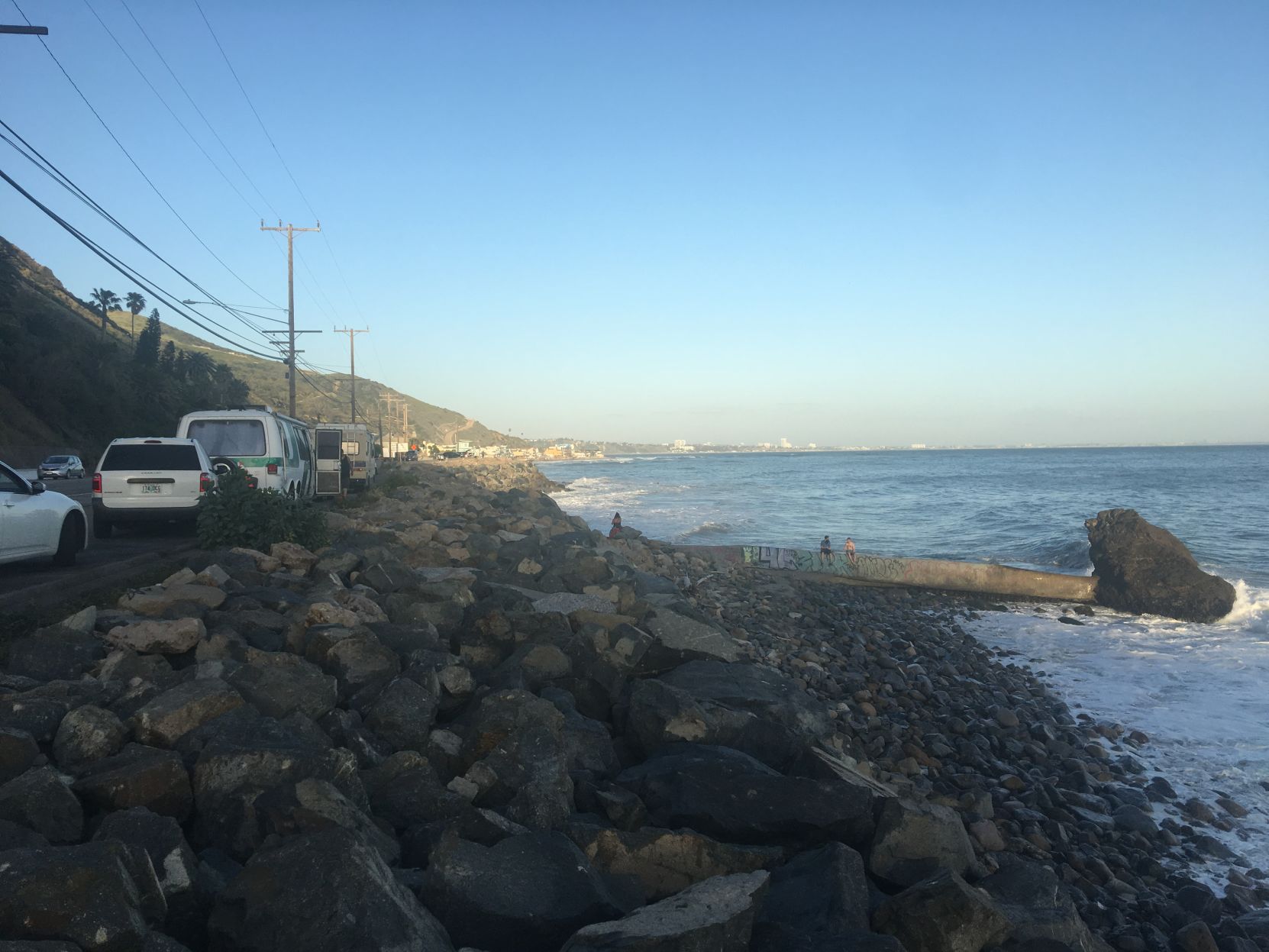
Framing its decision as a start to fixing an ongoing problem instead of as a final solution, the Malibu Planning Commission voted unanimously, 5-0, on Monday, Oct. 19, to approve permits allowing staggered overnight parking signs along Pacific Coast Highway at both Corral and Zuma Beaches.
Residents have long complained of RVs and other vehicles choking seaside roads and sometimes even discharging waste directly onto the beach, while homeless advocates have pointed out that those vehicles are often occupied by homeless people with nowhere else to go.
Now, the planning commission has given its permission to limit parking from 12 midnight to 2 a.m. and 2 a.m. to 4 a.m. in alternating portions of PCH, which commissioners hope will discourage vehicle owners from parking overnight.
There is precedent for this proposal: The California Coastal Commission allowed a similar regulation at Topanga Beach, which falls outside of Malibu city limits and is therefore within Los Angeles County’s purview, and also at Las Tunas Beach in Malibu.
Planning commissioners debated whether or not the measure would be effective in fixing the problem or would instead just create circular traffic patterns or move the problem elsewhere up the coast to a different part of Malibu.
“This is the ultimate catch-22 issue. The more successful we are at getting people to move, the more it becomes somebody else’s problem or another part of Malibu’s problem,” Planning Commissioner David Weil said. “That’s not to say I think we shouldn’t do this; I think we should, but we shouldn’t kid ourselves that this is solving any kind of problem, because it’s not.”
Other commissioners questioned whether the two-hour blocks would be effective. Assistant Planning Director Richard Mollica said that city staff had worked hard to draft a proposal that could easily earn approval from the California Coastal Commission; any more stringency and they might have some pushback about infringing on the public’s beach access.
The issue of how to enforce the parking regulations was also on the table. Multiple commissioners worried there would not be enough sheriff’s department personnel available to do the work of knocking on car doors when it was time for those cars to move along. Mollica said the city had contacted the sheriff’s department about this issue and was working to find a solution.
The city was also working to find ways to alleviate rising homeless numbers. Public outreach programs such as a possible safe parking program at Zuma—where unhoused people who live in their cars could safely park overnight and have access to restrooms—are being considered.
While the city continues to tackle the larger problem, Monday’s vote now grants Caltrans the ability to place these signs.
